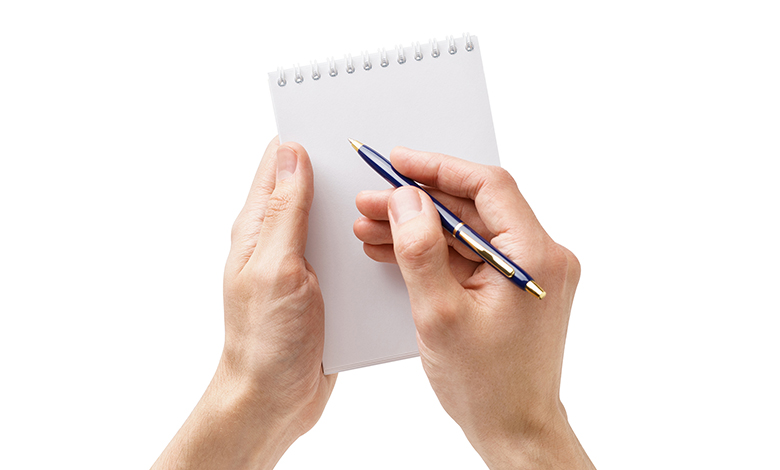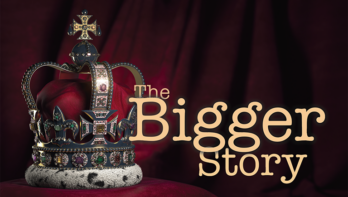
By Tez Brooks
“And whatever you do, in word or deed, do everything in the name of the Lord Jesus.” — Colossians 3:17 (ESV)
Because of our relationship with Jesus Christ, our entire lifestyle is formed by this passage. If everything is done in the name of Christ, our writing should also follow. As journalists, perfecting our interviewing skills glorifies God. With this in mind, here are six best practices for conducting an expert interview.
Clarify
As a Christian journalist and author, I’ve learned (sometimes the hard way) that before any interview, I must clarify my vision by asking:
- Who is my audience?
- What’s the one thing I’m trying to bring attention to and why?
- What do I want the audience to do/feel/understand?
- If there is a Call To Action (CTA), what is it?
Decide
Next, we must determine the best person to examine. The first person we are referred to may not be the right individual. Partial information often leads to dead ends if the interviewee is a third party. Part of collecting statements like a pro is to inquire:
- Who has the story we need?
- Who is the easiest to access?
- Which person in the story had the biggest hurdles to overcome, and does it make the story impactful?
- How related is their information to our goal for the article?
- Is the subject aware their account of the story will be widely published?
Communicate
Since you are a communication specialist, clear interactions will be expected of you as a well-organized professional. You’ll want to ensure you have done everything possible to avoid misunderstandings. Over-communicate the following:
- Express why you want to interview them. Is it for a particular story or a free-form interview, allowing the conversation to flow wherever it takes you?
- How will you meet (in person, by phone, or video call)?
- How long do you need for the interview? Typically, 1 hour is sufficient for the interview alone, with 15 minutes added on the front and back of that hour for introductions, small talk, and goodbyes. Try to be in and out in 90 minutes. If you have a camera crew, they should arrive before that time to be set up and ready when the interview begins.
- Settle on a date and time. The sooner, the better, while the story is fresh.
- Be courteous and share your vision for how the story will be used. The more information you share, the more honored people will feel.
- People usually prefer getting your questions ahead of time. But consider how this might lead to canned, sterilized responses. Whatever your decision, let them know why.
- Get their contact information before the interview so you can text and remind them of the time and place of the appointment. Provide clear directions for them, or if you’re the traveler, ensure they have provided that for you.
Prepare
Being ready sets the interviewee at ease. While you can never be prepared for things that go amuck (and they will), you can at least consider ways to avoid them. Here are just a few reminders to help:
- Try to arrive 15 minutes before your guest. Never be late.
- Advise your guests if they need to prepare anything ahead of time. Usually, they shouldn’t, that’s your job.
- Ask them to send you a digital photo of themselves before the interview.
- If using your smart device to record, make sure it’s fully charged and you have an external microphone.
- Bring a pen and paper for backup.
- Know where the interview will occur. Is it a quiet living room? Busy hotel lobby? Anticipate and eliminate ambient noise and interruptions. Again, arriving early allows time to change rooms or make adjustments.
- If you require a legal consent form, bring extra copies. People make mistakes.
- Bring two bottles of water (one for each of you).
- Consider bringing a small thank-you gift to give them after the interview.
- Carry a smile.
Focus
People love to ramble, so it’s critical to have the skill of steering or redirecting the interview so you’re not there all day and leave with nothing of value. Keep a list of your goals in front of you so you both stay on task. Focus on:
- the main character (ask lots of personal questions/history).
- the overarching story or issue (a.k.a. the end goal of the article). Take note of how retelling the event affected them physically, emotionally, and mentally. Take your time here.
- the solution, if there was a problem or conflict.
- their life since the event. How has it changed them?
- your audience. What’s in it for the readers?
- asking clarifying questions (filling in the gaps).
Follow Up
After the interview, the job is still far from over. The collecting, fact-checking, organizing, and first draft still have to occur. Then, editing and re-writing. It can be easy to move ahead haphazardly when deadlines hover. Good journalists work fast, great journalists work carefully. Keep the following in mind as you create your masterpiece:
- Don’t violate your interviewee’s trust when writing. You’ll burn bridges you may regret later.
- Besides God, you have three customers to please (the publisher, the interviewee, and the readers). Spin those plates, but don’t drop any.
- Send a hand-written thank you to your guest via USPS … not an email.
- Share any links to the published story with the subject. Encourage them to share it as well.
- Share positive reader feedback with the interviewee. They need to know they helped others through their story.
- Keep their contact details for follow-up questions or future interviews.
- Ask if they know of others who might like to be interviewed.
Being journalists in the industry, whether in Christian or secular sectors, we desire to do our best, as if working for the Lord and not mere men (see Colossians 3:23). If we practice these six habits, we’ll find they become second nature, and others will see our good works and glorify our Father (Matthew 5:16).
—–
As a multiple award-winning author, filmmaker, and international speaker, Tez Brooks’ work appears in Guideposts, Power for Living, CBN.com, Clubhouse, Focus on the Family, and more. Christianity.com featured him in “50 Authors You Should Know.” Tez is a member of Colorado Authors League and Word Weavers Intl. He and his wife live in Colorado. Learn more at TezBrooks.com.
Posted Feb. 26, 2024




